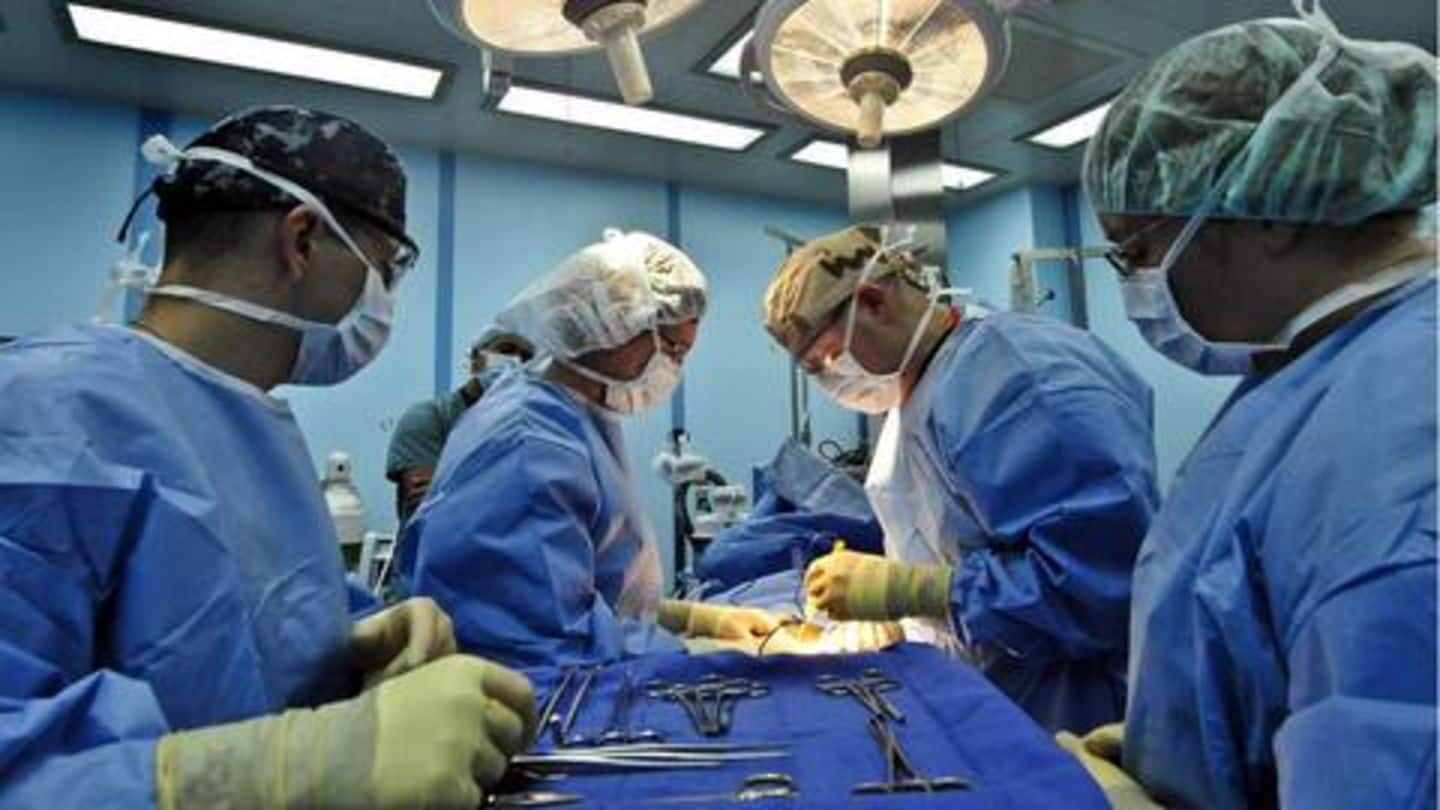
Rajasthan: As doctors remove brain tumor, patient recites 'Hanuman Chalisa'
What's the story
Remembering God during the time of severe crisis is something that comes naturally to almost everybody. Just like this man in Rajasthan who recited the verses of Hanuman Chalisa when doctors were trying to remove a tumor from his brain. 30-year-old Hulasmal Jangir from Bikaner underwent a successful awake brain surgery or awake craniotomy last month in a hospital in Jaipur. Here's what happened.
Diagnosis
Jangir was diagnosed with grade 2 brain tumor
Jangir, a computer accountant, was suffering from epilepsy seizures for the past three months. He was asked to undergo a biopsy test, after which he was diagnosed with grade 2 brain tumor that required surgery. Jangir felt anxious when doctors informed him that he needed to undergo an awake brain surgery, as it was the only way his speech would remain unaffected.
Risk
Few hospitals refused to perform surgery citing speech-loss, paralysis risk
A few hospitals had also refused to conduct the surgery, citing the enormous chance of loss of speech, and possible paralysis post surgery. Jangir then came to Narayana Multispecialty Hospital in Jaipur, where the surgery was performed by the neurosurgery team of 7-8 doctors, led by Dr. KK Bansal. He was initially hesitant to remain awake during surgery but later agreed.
Operation
Objective was to ensure Jangir's speech isn't affected, says doctor
Explaining further, Dr. Bansal said, "He (Jangir) had the tumor in the part of the brain that controls speech." And the objective was to ensure Jangir's speech is not affected. If they had noticed even a minor change in his speech, they would have taken corrective measures, Bansal added. "Jangir recited the Hanuman Chalisa for the entire time (3hrs), while we operated," he said.
Information
Why patients need to be awake during such surgeries?
Neurosurgeons conduct awake craniotomy to reach tumors located close to areas of the brain that control vision, speech, movement. A patient's response cannot be monitored if he or she's sedated, as an awake patient can help doctors ascertain the exact spot without damaging other areas.
Successful
Jangir was discharged 72 hours after the surgery
The surgery was conducted on November 14, and Jangir was discharged after 72 hours. Doctors took a month's time to disclose the details as they had to ascertain if the tumor has been removed successfully, and that there are no side effects. This is among the first few cases in the desert state where an awake craniotomy or awake brain surgery was performed successfully.
Past cases
Previously, man in South Africa played guitar during awake craniotomy
Earlier this month, a South African musician underwent a successful awake craniotomy as he played his guitar during the entire surgery. The patient, a jazz bassist, was asked by the doctors themselves to play guitar as it guided them during the procedure, conducted in Cape Town. In case he hit a wrong note, it would be a warning sign for doctors.